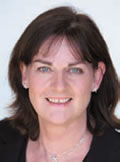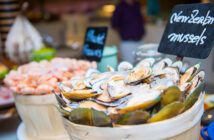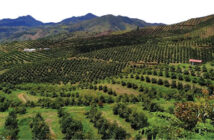At the Ministry for Primary Industries we are responsible for ensuring all New Zealand food exports are fit for purpose, wholesome and suitable to consumers wherever they are. For Muslim consumers that means ensuring food is produced according to Halal principles.
Given that almost a quarter of the world’s population is estimated to be Muslim, there is huge potential for our food producers to supply Muslim consumers with high-quality New Zealand foods produced according to acceptable practices.
When applied to food, the concept of Halal not only includes a ritual slaughter method for animals, but also increasingly dictates food safety and sanitary rules for the processing and handling of products. Other aspects of Halal include Halal-compliant ingredients in processed foods as well as correct segregation of Halal from non-Halal products in production and transport right through to retail display. In the non-food area certain overseas countries are in the process of determining appropriate standards for animal product ingredients that are used in cosmetics and pharmaceutical products.
Halal meat is already big business for New Zealand meat producers. In the last year sheep meat exports to Saudi Arabia, for example, were worth $96 million, and $47 million to Malaysia.
There is a great deal of development work being done globally on Halal standards for food, encompassing the paddock to plate spectrum. For a number of years, MPI has been working to ensure New Zealand’s animal products export system aligns with Halal international best practice. Most recently we established a Halal Standards Advisory Council to ensure New Zealand’s animal products export system stays at the forefront of Halal international best practice.
The council provides government with advice on religious and technical matters when creating standards for the production and processing of Halal products. The expertise of the council helps to ensure New Zealand meat and dairy products continue to comply with increasingly stringent Halal standards set by markets around the world.
The Council was established under the Animal Products (Overseas Market Access Requirements for Halal Assurances) Notice 2012, which aims to assist access for New Zealand animal product exports into overseas markets.
This Notice sets standards that apply to Halal certifiers and producers of Halal food exports and was developed jointly by industry, Halal certifiers and the New Zealand Food Safety Authority, now part of MPI.
Under these rules, destination markets continue to ultimately determine which Halal certifiers can provide Halal certification for their particular market. MPI’s role is to oversee Halal standards agreed with overseas markets.
MPI uses a number of technical advisory councils to engage with stakeholders, and the establishment of the Halal Standards Advisory Council ensures a similar depth of dialogue around the production and processing of Halal products.
The Council consists of practicing Muslim members who are experts in food safety, Islamic knowledge and quality systems management and audit, chaired by Dr Anwar Ghani. The two New Zealand based Islamic scholars bring an international perspective and representation across New Zealand’s Muslim community. The council also has a Government representative appointed by MPI.
MPI’s market access team works closely with the Council as well as religious authorities in our overseas markets to enhance access for New Zealand products into the world’s major markets and ensure consumers’ needs are met.
Carol Barnao is a member of the NZ FOODtechnology advisory panel and deputy directorgeneral of the Ministry for Primary Industries’ Standards branch. Before this, she was NZFSA director of the Assurances and Standards Group which provided assurances that New Zealand food and related products are safe and suitable to eat. Carol has a strong background in the dairy industry. Before joining MAF 12 years ago, she was for 18 years involved in the dairy industry. She has held various positions with the New Zealand Dairy Board. She is a food technologist and a fellow of the New Zealand Institute of Food Science and Technology.
If you have questions for Ms Barnao or suggestions on areas of interest in her specialist area, email editor Steve Best at [email protected], reference Carol Barnao.





























































































